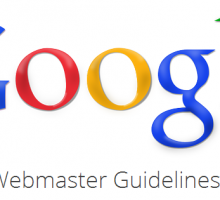As the choices among SEO companies become more prolific it becomes more important to understand the difference between ethical forms of SEO and those which may be less ethical.
 Ethical SEO utilises methods which optimise web sites for visitors rather than for search engines. This is the primary difference between ethical and unethical forms of SEO. Unethical forms of SEO, which are also commonly referred to as black hat SEO, may include various tactics such as:
Ethical SEO utilises methods which optimise web sites for visitors rather than for search engines. This is the primary difference between ethical and unethical forms of SEO. Unethical forms of SEO, which are also commonly referred to as black hat SEO, may include various tactics such as:
• Breaking regulations and rules of specific search engines
• Creating a user experience that is poor
• Presenting content in an unethical manner, such as through a non-standard manner for the specific purpose of searching for users or search engine spiders
In some cases, methods which are termed as black hat or unethical SEO today were once actually legitimate. Unfortunately, due to these methods being used to excess they are now considered to be unethical forms of search engine optimisation. Keyword stuffing is an excellent example of this. Keyword stuffing commonly involves the use of extremely long lists of keywords on a web site and very little, if any, relevant content.
While keyword optimisation is an excellent SEO method, when taken too far, it can have undesirable effects. Generally, unethical forms of SEO provide short-term benefits regarding rankings and can result in a website being blacklisted! Once unethical forms of SEO are discovered on a website, the result is typically penalisation. In most instances, this results in the site being banned from major search engines.
Unethical forms of SEO which should be avoided include invisible text and doorway pages. Invisible text is commonly placed on a site by placing keywords in the same color text as the background, such as white on white. Although the keywords cannot be seen by users because they are meant to attract search engine crawlers. Doorway pages are also commonly invisible to users and are also meant to trick search engine spiders into giving the site a higher ranking. Both of these examples of unethical SEO can result in penalisation such as search engine banning.
While the risks are serious, unethical forms of SEO can be tempting. One of the reasons they are so attractive is the fact that they can provide rapid results. It should be kept in mind that, although unethical forms of SEO can result in fast results those results are commonly temporary. Ultimately, sites are often banned for practicing such unethical practices. As a result, these methods are simply not worth taking the risk.
The efficient use of ethical SEO provides far better long-term results by allowing your site to receive higher search engine rankings without the risk of penalisation or being banned.
Ethical SEO methods involve a design and development that is search engine friendly while still following guidelines that have been established by major search engines like Google. Working within these guidelines provides optimal results without undue risk.
The use of relevant of content is also an important part of ethical SEO methods. It is often said thatcontent is king when it comes to succeeding on the Internet. This is certainly true due to the fact that visitors typically visit a site in order to access needed information.
Content may be optimised using highly targeted keywords, although overuse of keywords is prohibited. In addition, content should not be duplicated on other pages of the web site. Ideally, content should be refreshed on a regular basis so that it is unique. The main guideline is to ensure that content and the pages on which it is placed is created for users rather than for search engines. Under no circumstances should users be deceived. Not only is this likely to irritate the user and ensure their swift exit from the site, but this practice can also result in your site being banned.
Additionally, different pages and content should not be presented to search engines than are presented to users. This technique is commonly referred to as cloaking and is a form of unethical or black hat SEO.
Meta tags also play an important role in the use of ethical SEO methods. Meta tags include keywords, description and title and are used to display phrases and keywords to online visitors as well as search engines. Basically, they provide a very brief overview of what is offered on the site. All of the descriptions and keywords that are used in Meta tags should always be relevant and unique to each web page.
Submitting web sites to directories is an effective way of increasing web site traffic and search engine rankings. Ethical SEO techniques emphasise selecting relevant categories for submission. In addition, link exchanges should also be relevant. Also, a sitemap should be available for users, which provides them with the main links on the site.
Finally, the results from using ethical seo techniques may take longer to take effect than some of you are prepared to wait, however, if implemented properly the rewards can be significant and longer lasting. Don’t be tempted to try anything unethical because search engines like Google will catch you, maybe not immediately, but certainly they will one day and they may remove your site from their search engine completely! Stick to using ethical seo techniques and be visitor focused!
Our in-house SEO specialists only practice ethical seo techniques because they deliver the best results, if you need any assistance with your SEO strategy or implementation then please contact us.



